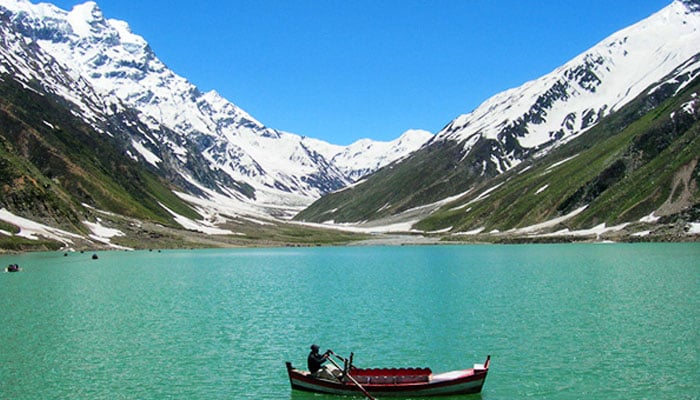INSUBCONTINENT EXCLUSIVE:
Soaring temperatures pace up glacial melt in Pakistan's northISLAMABAD: Growing average temperatures in
Indus river, one of the longest rivers in Asia, supports biodiversity, ecosystems of temperate forests and food systems in the country, its
risk Pakistan is faced with.Other risks include sea-level rise, floods, higher than average temperature, a higher frequency of droughts and
have already shown through findings of their various scientific studies based on satellite imagery and field-based studies that there is
snow-covered areas in Gilgit-Baltistan and Chitral district are causing mountain streams and rivers swell alarmingly in summer months and
regions used to receive snowfall from October to February and in some cases as late as March.But, what we observed and heard the mountain
observed.He highlighted that low snow accumulation and spiking warming temperatures are also causing snowline to recede in the glacier
last more than 30 years the snow line has receded by over 1.1 kilometres.Apart from it, uphill migration of animals and plants has been
Passu glacier (having ice reserves of nearly 10.89 cubic km) near Gojal vallly in Gilgit-Baltistan, has showed that the glacier has
retreated by 25 metres in last one year.He said that even during peak summer months, temperature never used to go beyond 28 Celsius in most
summer temperatures that rose up to 46 Celsius.The rising temperatures have also affected precipitation patterns in these areas, he told
only on mountain peaks while sloppy grounds in mountain areas either do not receive snowfall or receive in low quality
official said.The Climate Change Ministry Spokesperson suggested that building more water reservoirs, adopting low-carbon energy sources
such as solar, wind, hydro, promoting rainwater harvesting and groundwater recharging systems, enhancing efficient water management and use,
particularly in agriculture sector, which accounts for 94-96percent of the water use and boosting public awareness about water conservation
can help the country survive socio-economic and environmental repercussions of depleting water resources.

